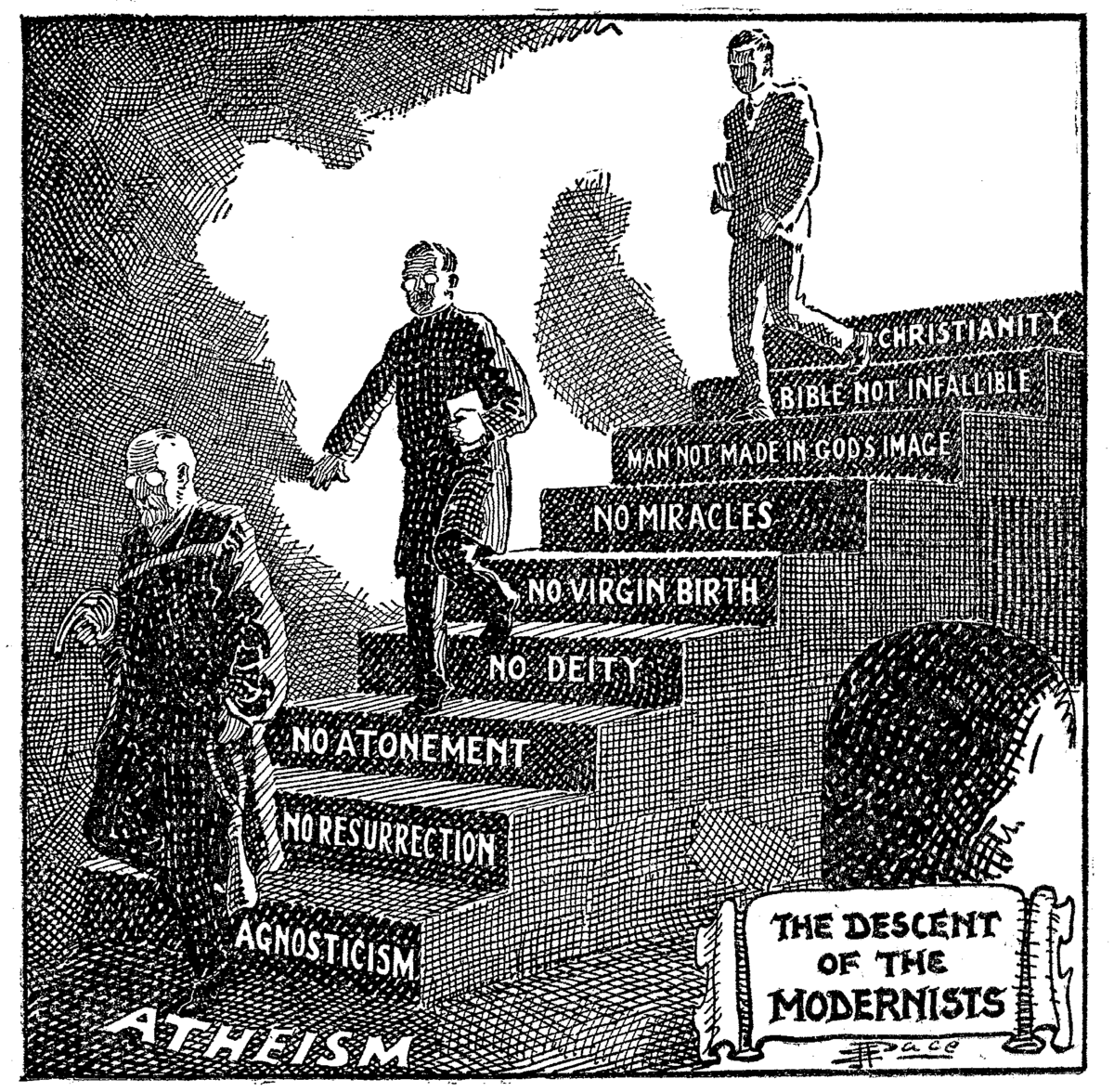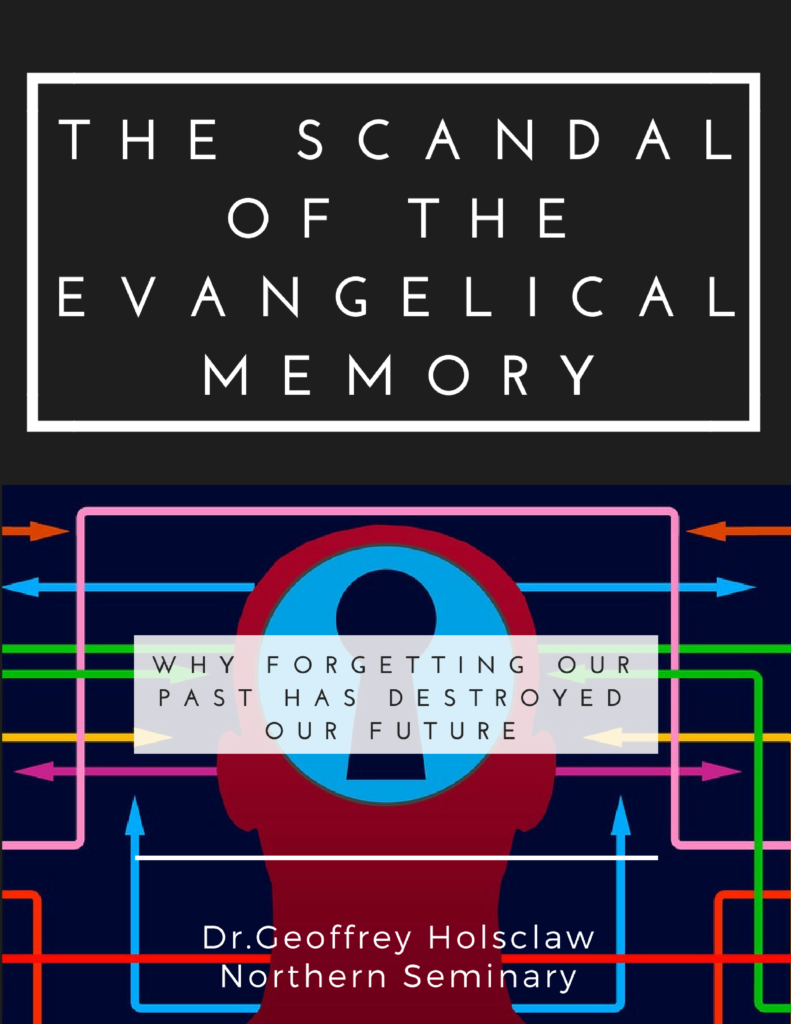Christian Fundamentalism is like an autoimmune disease.
I know it sounds harsh. And I was raised Fundamentalist, and I’ve suffered under its effects.
So let me explain.
An autoimmune disease is when the immune system attacks the body it is meant to protect.
This is what Fundamentalism has been doing to the Evangelical body for the last 100 years—it started off as something necessary, but now it’s a nasty disease harming the church.
The Rise of Fundamentalism:
Fundamentalism developed in the West in the late 19th and early 20th century. It developed to fight off modernist and liberal Christian theology. The rise of Fundamentalism was meant to restore the health of orthodoxy from the debilitating effects of theological modernism and liberalism.
But what started as a restoration to health from an external attack turned and started attacking the Evangelicalism that it claimed to be protecting—destroying the body it was supposed to help.
This is why I call Fundamentalism an autoimmune disease, taking a healthy response to protect orthodoxy to an extreme and destructive level.
The Spread of Fundamentalism:
While Christian Fundamentalism (in the US) spread silently though Evangelicalism for 40 years, Evangelicalism tried to re-establish itself in the 1950s. But long-term damage had already been done to Evangelicalism, shifting from a “whole” gospel (of spiritual revival and social reform) to a “soul” gospel (of individual salvation).
Fundamentalist in America emerged again in the 1980s and engaged in politics more forcefully.
This Fundamentalism even rebrand itself as the true “Evangelicalism.”
Now the autoimmune disease of Fundamentalism was pretending to be the picture of true health—even while it engaged in a destructive “cultural war” with those inside and outside the church.
The Reign of Fundamentalism:
As it now stands, everyone who is a conservative Christian in the US is called an Evangelical. And no one wants to be called a Fundamentalist. And the news media makes no distinctions either, happy to group everyone together, casting a big net and only reporting on the ugliest of fish.
Books on the history of Evangelicalism often fail to distinguish the rise of Fundamentalism as a corruption of historic Evangelicalism.
People just think that Fundamentalism is Evangelicalism.
But Evangelicalism is broader and richer [link to my ebook] than the Fundamentalist autoimmune disease.
And Fundamentalists who are thoroughly taken over by this disease are actually little more than “cultural Christians” who use words like “God”, the “gopsel”, and “Jesus” with little understanding or faithfulness.
Evangelicals are Not Fundamentalists:
So we need to make some distinctions about Evangelicals and Fundamentalists, even if the mainstream media never does.
And truth be told, I haven’t always lived by these distinctions. And in the process I’ve offended people that I meant to encourage, and distanced people I was trying to draw near. In my Open Letter to White Christians I should have called Robert Jeffress a Fundamentalist rather than just a conservative.
Truth:
Evangelicals stand for the truth—like all Christians should.
Fundamentalist feel like they need to fight others over the truth.
Transformation:
Evangelicals work for the transformation of society.
Fundamentalists work to transform society by warring against anyone that doesn’t agree with them.
Culture:
Evangelicals want to see the salvation of culture.
Fundamentalists are in a war with culture.
Disagreements:
Evangelicals will work with people they disagree with.
Fundamentalist fight against those they disagree with.
Revival and Reform:
Evangelicals long for spiritual revival and social reform.
Fundamentalists see social reform as a betrayal of spiritual revival.
You Might Be a Fundamentalist If:
No one wants to be called a Fundamentalist these days.
But the truth is that most conservatives and moderate Christians are fighting the autoimmune disease of Fundamentalism, sometimes more successfully and sometime less.
You might be succumbing to this Fundamentalist disease if:
• You can’t respectfully and patiently disagree with other Christians.
• You see winning souls as disconnected from changing society.
• You see changing “hearts and minds” as the solution to most problems.
• You know a couple biblical proof texts about hot topic issues, but haven’t really tried to follow the life of Jesus (Matt. 5-7).
• You are quick with platitudes and criticism, and slow on pity or compassion for all people.
• You are more worried about big ideas destroying our culture (marxism, socialism, racism, fascism) than the actual people in your neighborhood.
• You are more afraid of what is happening in the world, or afraid of what is happening to the church, than you are filled with hope and joy in God.
So, how to move forward?
If you sense any of these Fundamentalist tendencies in yourself, then there is still hope.
1) Read through Matthew 5-7 (the Sermon on the Mount) and start doing some of it—like really doing it.
2) Read through the Gospel of Mark and how Jesus treated people—people that were in power (Pharisees, Scribes, High Priest) and how he treated those without access to power (lepers, tax collectors, sinners).
3) Or slightly more advanced, start reading through the Old Testament Prophets like Hosea, Joel, or Amos, and ask, “What is God really concerned about? How is God responding to Israel and why?



6 replies on “Fundamentalism is an Autoimmune Disease”
Great post Geoffrey! Keep up the good work.
I get some of the point the article is making, but it seems to minimise the importance of individual salvation. It also seems to suggest that ‘changing hearts and minds’ as the solution to many problems is something which is fundamentalist. Is it? Changing hearts and minds seems to be much more what Jesus did than using force? I also think that it’s naive to think that ideas and academia are not infuential. Ideas, phliosophy, the history of ideas and worldviews are hugely infleuntial in our society, to suggest otherwise is just anti intellectual.that And bad ideas can be a bad influence. I also think it’s not fundamentalist to be worried about some of whats going on in the world. There are Christian brothers and sisters who are in prison for their faith or being murdered or beaten. If I met some Chineese Christians being persecuted who were afraid, its seems all this article has to say to them ‘oh you silly fundamentalists’. Surely we should acknowledge fear and ask God to help us trust him more, but not belittle the reality of some of the incredibly concerning things going on in the world right now for Christians.
At the very beginning of the article, he put in parentheses that he means fundamentalists in the US. I don’t think he intends to include Christians in the rest of the world in this particular discussion.
But I do have some of the same questions as you with the main one being: “If changing hearts and minds is not the full solution to many of the issues, then what is?”
Thank you for having the courage to write this. After watching the miniseries Chernobyl, which was made to critique our current political climate, I actually viewed it through the lens of modern church history. We are so afraid to speak truth to power (or giving or voting blocks), that we simultaneously have lost our prophetic vocation—aligning over ideologies rather than our brothers and sisters in Christ, especially ones who are marginalized (see Jesus relationships in Mark as you mentioned). The best line of Chernobyl was the opening monologue: “What is the cost of lies? It’s not that we’ll mistake them for the truth. The real danger is that if we hear enough lies, then we no longer recognize the truth at all.” We need theologians like you Geoff to have the courage to tell the truth, so again, thank you! And the truth includes an “and”, in the same way loving God includes loving others—something Fundamentalism has bifurcated in it’s bowing to civic religion.
Geoff, if we have to put an adjective on the front of the gospel, the church has failed.
[…] Geoff Holsclaw | Fundamentalism is an Autoimmune Disease […]